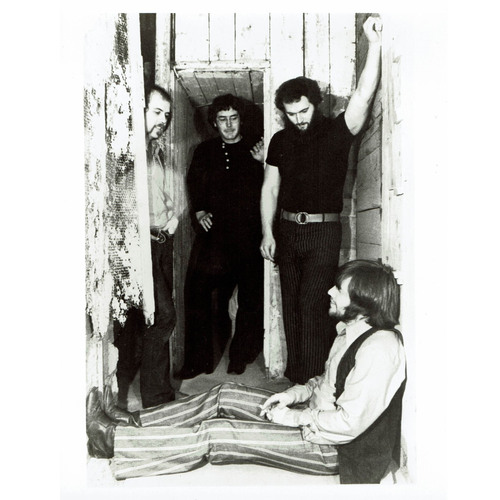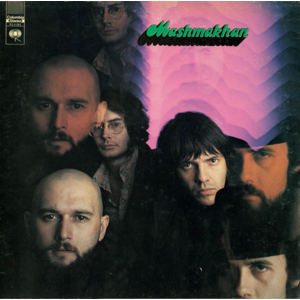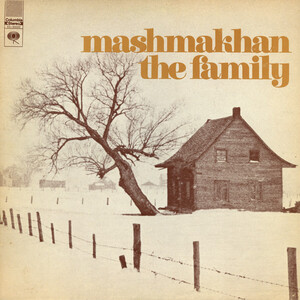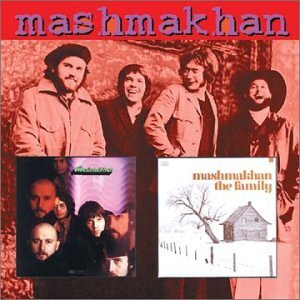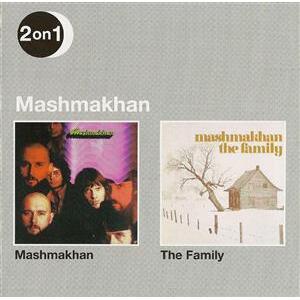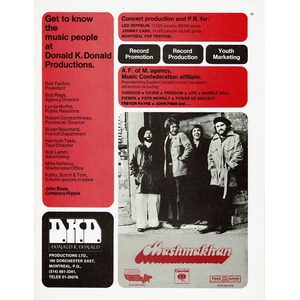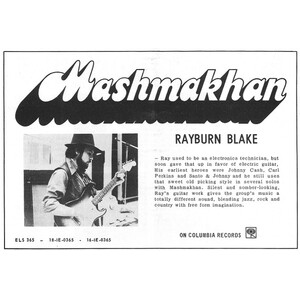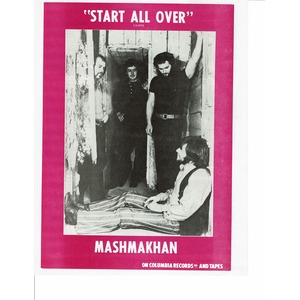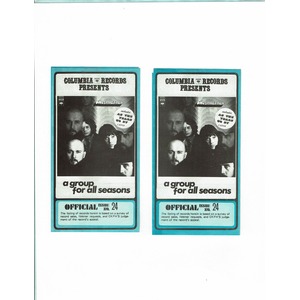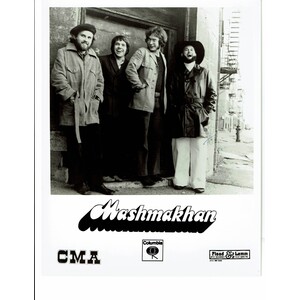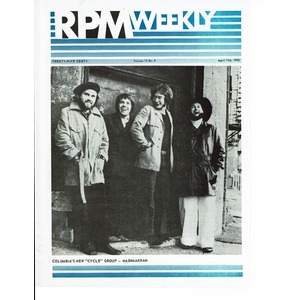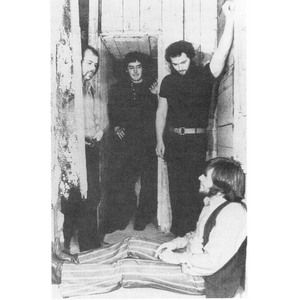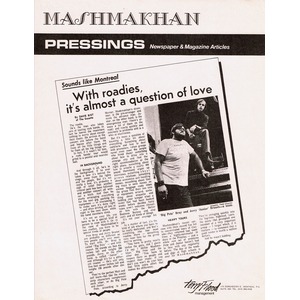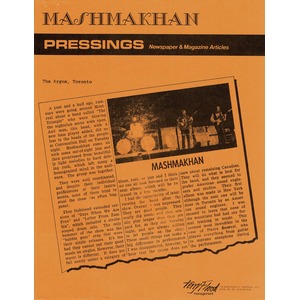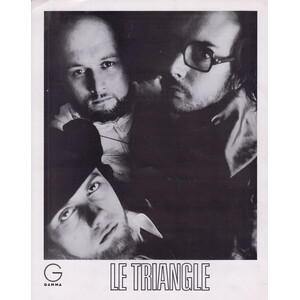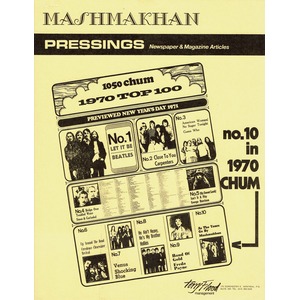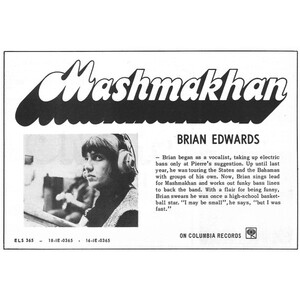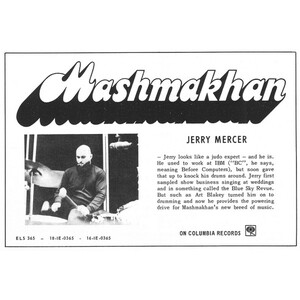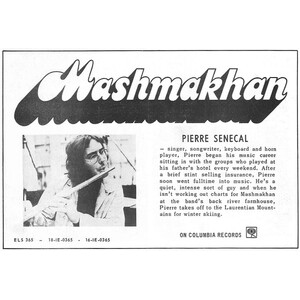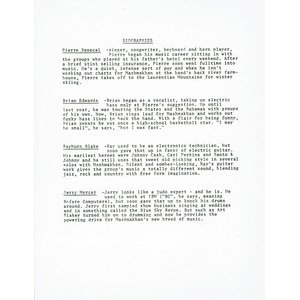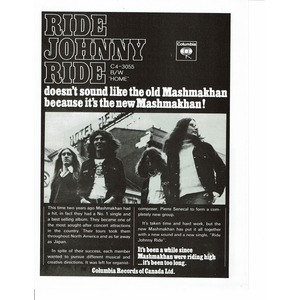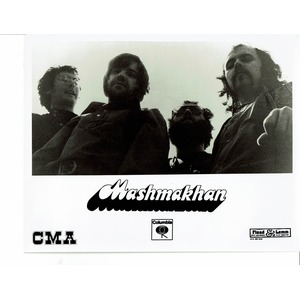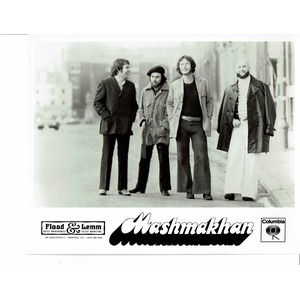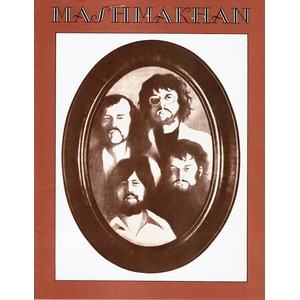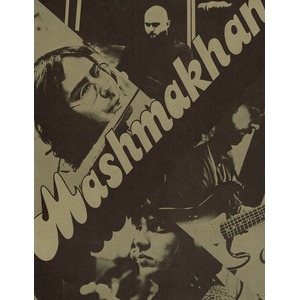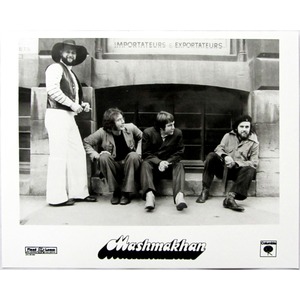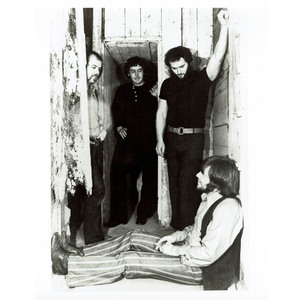Mashmakhan
Websites:
https://www.thecanadianencyclopedia.ca/en/article/mashmakhan-emc
Origin:
Montréal, Québec, 🇨🇦
Biography:
Mashmakhan. Montreal rock band. It evolved from a succession of groups in the 1960s - eg, the Phantoms, the Dominoes, and Triangle, the last backing R&B singer Trevor Payne - that included the songwriter Pierre Sénécal (vocals, keyboards, flute), Rayburn Blake (guitar), and Jerry Mercer (drums). On leaving Payne, the trio made their debut in February 1969 at a Montreal club, the Laugh In, and soon after gave the first rock concert heard at the NAC. The bass guitarist Brian Edwards was added, and the name of an exotic hallucinogen adopted, prior to the release in 1970 of the band's first LP, Mashmakhan (Col ELS 365).
The international success of the single 'As the Years Go By,' a pop song atypical of the band's venturesome, improvisational style, led to concerts in the USA and Japan, including a Tokyo appearance in 1971 before an audience of 40,000. A second album, Family (Epic E30813), was issued in 1971. Mashmakhan disbanded soon after. Efforts to revive the group during the mid-1970s involved, variously, Sénécal, Allan Nichols (vocals), Brian Greenaway (guitar), Steve Lang (bass), Lorne Nehring (drums), and others, and further singles were issued by Aquarius Records.
Mashmakhan was a Canadian rock band formed in 1969 in L'Île-Perrot, Quebec. The band is best known for their 1970 hit single "As the Years Go By". The song reached No. 1 in Canada, and the Top 40 in the United States. The song was also a major hit in Japan.
Background
Members Pierre Sénécal, Brian Edwards, Jim Nuchter and Rayburn Blake first met in 1960 in Montreal, Quebec. Their drummer did not show up one night for a gig, so Jerry Mercer was brought in and ended up joining the band. Edwards quit shortly thereafter, but the other three continued to perform on the local scene under names like the Phantoms, Ray Blake's Combo, and the Dominoes.
By 1965 the group called themselves The Triangle, and backed up local R&B singer Trevor Payne. They worked with Payne for four years until being discovered by record producer Bob Hahn, who recorded demos for the group in March 1969 and helped them get signed with Columbia Records in Toronto. Edwards rejoined the band and they changed their name to Mashmakhan, after a variety of hashish sold by a local dealer, to appeal to a modern audience.
Brian Edwards had been in the group Five of a Kind with future Natural Gas keyboard player Brian Wray.
History
The Sénécal-penned song "As the Years Go By" was released off their debut album in an edited form, and was the group's first hit; it sold 100,000 copies in Canada and 400,000 copies in the United States (on the Epic label). The band actually wrote the song as a novelty addition to their album, not expecting it to gain serious recognition. The single also sold 400,000 copies in Japan. This disc sold over one million copies globally, and received a gold disc. The two follow-up singles were "Gladwin" and "Days When We Are Free".
In June and July 1970, the band performed during the Festival Express concerts (initially billed as the "Transcontinental Pop Festival"). Their live performance of "Comin' Home Baby" appears in the "Festival Express" film. Their live performances of "Comin' Home Baby" and "As the Years Go By", along with interviews, appear in the "Festival Express" DVD release.
In 1971, Mashmakhan was one of two contributors to the musical score of the NFB film Epilogue/Fièvre, which was directed by William Pettigrew. "Couldn't Find the Sun", written by Rayburn Blake for the movie, was included on Mashmakhan's 1971 album The Family. This album also did well in Japan, but the band realized little domestic success and split up shortly thereafter.
Blake joined the Lisa Hartt Band and also recorded some solo material, and Jerry Mercer joined April Wine. The original group was revived twice in the late 1970s by Aquarius Records with future April Wine members Brian Greenway and, later, Steve Lang.
Mashmakhan later experienced significant renewed interest with the release of the 2003 film Festival Express, which featured colour film of the band performing two songs during a train tour of Canada in 1970.
Brian Edwards (born 4 November 1943) died on 20 October 2016, at age 72.
Named after the biggest drug dealer of the city, Mashmakhan was a Montreal quartet that rose to national attention before cross-town rivals of XXX and Morse Code Transmission: they even had an international hit (third biggest ever in Japan) with As The Years Go By on their first album. Lead by the multi-talented Pierre Sénécal, the group had started out as Triangle, a back-up band to Trevor Payne, but by the end of the decade, he was history and Mashmakhan was happening with some wild psych rock. On stage, the group's presence consisted of drummer Mercer's impressive bearded looks and drumming, while bassist Edwards sang and Sénécal's keyboards and wind instruments provided more visual focus.
They got signed to major label Columbia (Epic in the US) and released their first self-titled album in 1970 and the extracted single As Years Go By shot through charts around the world. The music developed is a tidy psych rock, sometimes looking at early Floyd (as the album's sleeve artwork points to Piper), sometimes to more open musical
The group would release their second album, The Family, the next year and extracted three singles from it, but none would equal As The Years Go By, although they were still successful in Canada. This second album is rather different with longer tracks, more instrumental interplay, but definitely not as tight as their debut.
After the second album's release, the group would release a few more singles on a different label, but each one was having less success than its predecessor, so logically Sénecal left the group to. Silence for certain amount of years. The group went on until late 73 with a slew of member changes
Sénécal would go on to multiple projects including two solo albums about a decade later, while drummer Mercer would join APRIL WINE when the Halifax group relocated to Montreal by the mid-70's and the other members Blake and Edwards would form RIVERSON, that would record just one album. The group Mashmakhan went on to reform a few times for short reunions in the late 70's with Mercer bringing in APRIL WINE members, but nothing evolved out of it. One of Canada's first progressive groups to achieve international Rock fame along with THE GUESS WHO (remember American Woman), MASHMAKHAN is sadly a bit forgotten nowadays, but still deserves your attention if you're into early prog
-Hugues Chantraine, Belgium
